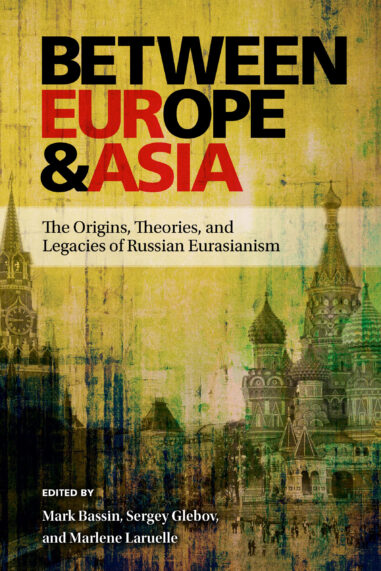
Paperback $55.00
Request Exam or Desk Copy. Request Review Copy
Between Europe and Asia
The Origins, Theories, and Legacies of Russian Eurasianism
Goes a long way toward meeting the need for a multicisciplinary and multiethnic understanding of this important and fascinating current in modern Russian history. [These essays] advance our understanding of Eurasianism's origins, the contexts within which it took shape as a movement among emigre and exile circles in interwar Europe, and its legacies across time and space—from interwar Japan to late Soviet and contemporary Russia. This volume should help readers formulate their own answers to key questions on Russia's historical identity and the future trajectory of the post-Soviet space and the peoples that inhabit that space.


